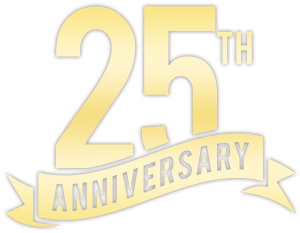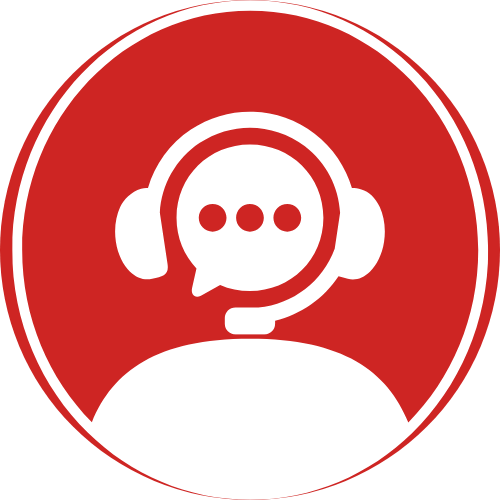Being a passenger in a multi‑car pileup can be terrifying and life‑altering. With little control over the events unfolding, passengers are among the most vulnerable parties during these accidents. If you’ve been injured as a passenger in a highway or roadway pileup caused by wet conditions or driver negligence in Florida, you have legal rights worth protecting. At Dennis Hernandez Injury Attorneys, we’ve recovered millions and millions for injured clients. We fight to get you paid!
Why Are Multi‑Car Accidents So Dangerous on Florida Roads?
Pileups frequently occur during heavy rainfall when roads become slick and visibility decreases. In Florida, rain contributes to thousands of collisions annually. According to the Federal Highway Administration, wet pavement is a factor in over 70% of weather‑related crashes. This hazard, combined with traffic congestion, speeding, or distracted driving, can create a dangerous chain reaction.
Sudden braking on wet roads reduces a driver’s control. Vehicles following too closely often cannot stop in time, leading to a domino effect of rear‑end collisions. The more cars involved, the more complex it becomes to determine who was at fault—and the more injuries are likely to occur.
Are Passengers Ever at Fault in These Accidents?
Generally, no. Florida law recognizes that passengers are not in control of the vehicle and are almost never responsible for causing a crash. As a result, passengers injured in a pileup are entitled to seek compensation from the at‑fault parties, even if multiple drivers share blame.
This protection allows you to file a claim against one or several responsible parties, depending on the circumstances. Florida’s modified comparative negligence standard only reduces a victim’s compensation if they are more than 50% responsible. As a passenger, this threshold rarely applies to you.
These claims often fall under not at fault passenger injury Florida statutes and are supported by clear legal precedent.
What Should You Do Right After the Accident?
Your first priority is always your health. Even if your injuries seem minor, get checked by a doctor immediately. Injuries like whiplash or internal trauma can take hours or days to appear. Medical documentation is also essential if you later file a claim for compensation.
While still at the scene, if you are able, take photos and videos of the wreckage, road conditions, and injuries. Gather names and contact information of all involved drivers, passengers, and eyewitnesses. This evidence can be crucial when building your case.
Always file a police report. An officer’s official documentation—including weather conditions, time of day, and preliminary fault assessment—can serve as key evidence later in your claim.
What Compensation Is Available for Injured Passengers?
As an injured passenger, you may be entitled to recover:
- Emergency room and medical expenses
- Lost income and diminished earning capacity
- Pain and suffering
- Rehabilitation and therapy costs
- Property damage (if personal belongings were destroyed)
In cases involving extreme negligence, you may also be eligible for punitive damages. Compensation will vary depending on injury severity and the extent of insurance coverage available.
Does Florida’s No‑Fault Insurance Cover Passengers?
Yes, but only to a point. Under Florida’s no‑fault insurance law, Personal Injury Protection (PIP) coverage pays up to $10,000 in medical bills regardless of who was at fault. This applies to drivers and passengers alike.
However, medical costs in serious accidents often exceed this cap. When that happens, injured passengers can file a claim against the at‑fault driver’s liability insurance or other drivers involved in the pileup. A personal injury attorney can help you navigate these options.
What Happens When Multiple Drivers Share Fault?
In pileup accidents, several drivers may contribute to the crash. Florida follows a modified comparative negligence model, allowing multiple parties to be held liable. Each may owe you a portion of your total damages.
For example, if two drivers are found equally responsible, each may be required to pay 50% of your damages. This makes thorough investigation and representation vital to getting the full compensation you deserve.
How Can You Prove Liability in a Multi‑Car Pileup?
Proving fault can be challenging without the right support. An attorney can:
- Analyze police reports and crash diagrams
- Review dash cam or traffic camera footage
- Interview eyewitnesses
- Bring in accident reconstruction experts
Strong evidence can help show which drivers acted negligently and how their actions contributed to the crash. This includes proving things like speeding, distracted driving, or failure to maintain a safe following distance.
How Can a Personal Injury Attorney Help You?
Navigating the legal process after a pileup can be overwhelming. An experienced personal injury attorney can:
- Handle communications with multiple insurance companies
- Help document your injuries and expenses
- Identify all at‑fault parties
- Pursue fair compensation through negotiation or litigation
With a seasoned legal team like Dennis Hernandez Injury Attorneys on your side, you don’t have to face the insurance companies alone. We’ve recovered millions and millions for clients and know how to fight for what’s fair.
What If the Car You Were In Wasn’t at Fault?
You can still file claims against other negligent drivers. For instance, if your rideshare driver, friend, or family member was not at fault, their insurer may still cover part of your claim, and you can also pursue other drivers who caused or contributed to the pileup.
You may also qualify for additional compensation under uninsured or underinsured motorist coverage, if available. This coverage is often critical in pileups where some drivers flee the scene or have insufficient insurance.
What Types of Injuries Are Common in Pileups?
Passengers often suffer from:
- Neck and spinal injuries
- Head trauma and concussions
- Broken bones or fractures
- Internal organ injuries
- Mental health conditions like PTSD
These injuries may not be immediately obvious but can cause long‑term complications. Seeking immediate care and legal guidance ensures you don’t carry the financial burden for someone else’s recklessness.
Are There Related Risks to Be Aware Of?
Absolutely. Other premises‑related incidents can also occur around homes and roadways. If you were hurt outside the vehicle, like in a front porch injury central Florida accident while waiting to be picked up, or suffered a delivery fall pet hazard Florida incident, these too fall under premises liability private property law.
In these cases, a personal injury attorney can help you bring a claim against a property owner whose negligence contributed to your fall or injury. This ensures that you’re protected whether the injury happened on the road or at someone’s home.
What if the Crash Was a Rear‑End Chain Crash in Central Florida?
If the pileup involved a rear‑end chain crash central Florida style, the sequence of impacts becomes critical to investigate. A thorough legal review can determine where the chain began and who ultimately bears liability for triggering the series of collisions. This type of event is common during severe weather when vehicles lose traction.
How Long Do You Have to File a Claim?
Florida’s statute of limitations for personal injury claims is two years from the date of the accident, as outlined in Florida Statutes §95.11. Filing beyond that deadline may forfeit your legal rights.
Acting quickly not only protects your claim but helps preserve valuable evidence that may be lost over time. The sooner you contact an attorney, the better your chances of a successful outcome.
What Should You Do Now?
If you were a passenger injured in a multi‑car pileup, take the following steps immediately:
- Seek medical attention and follow through with all treatment
- Report the accident and obtain a copy of the police report
- Document the crash scene with photos and videos
- Save receipts, medical records, and time‑off documentation
- Contact Dennis Hernandez Injury Attorneys for a free consultation






